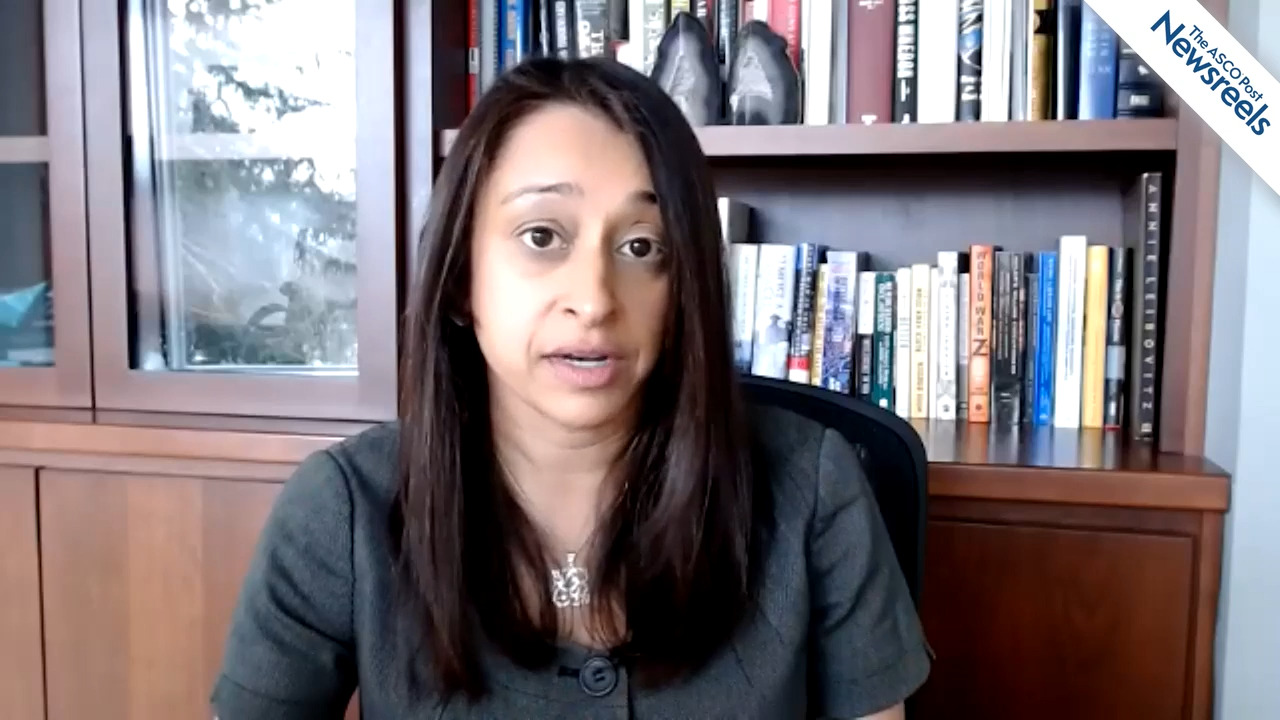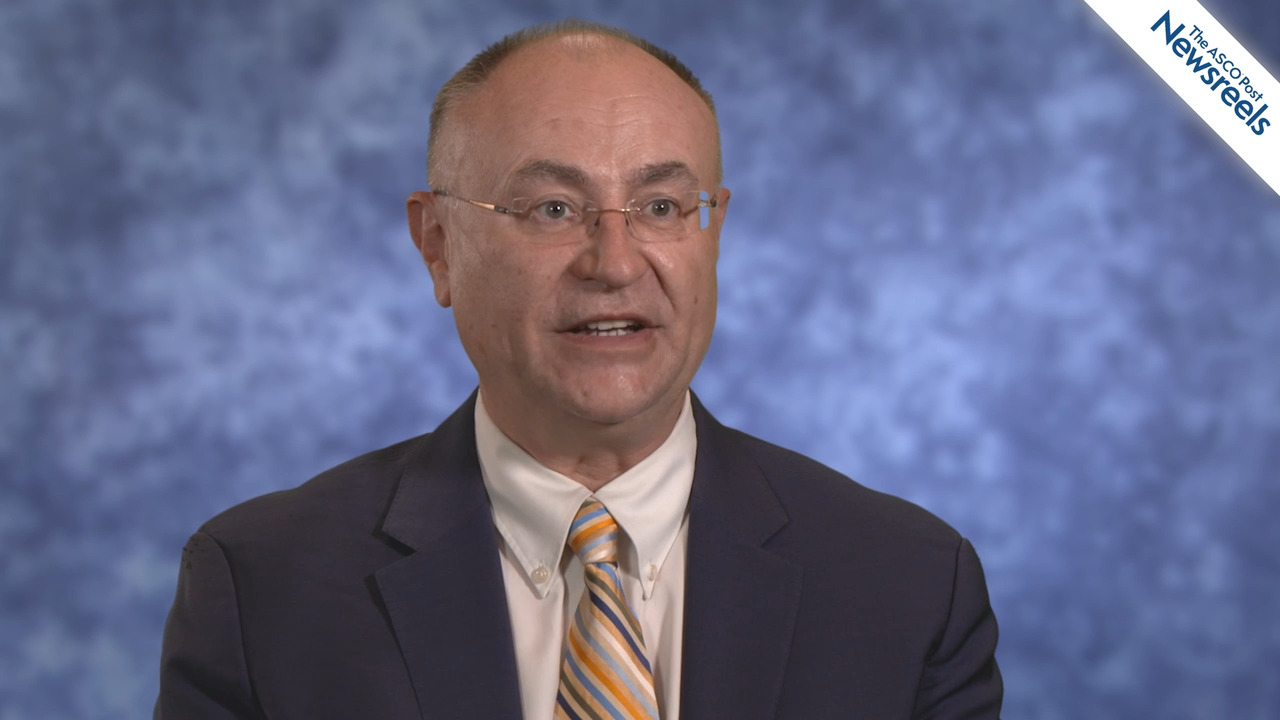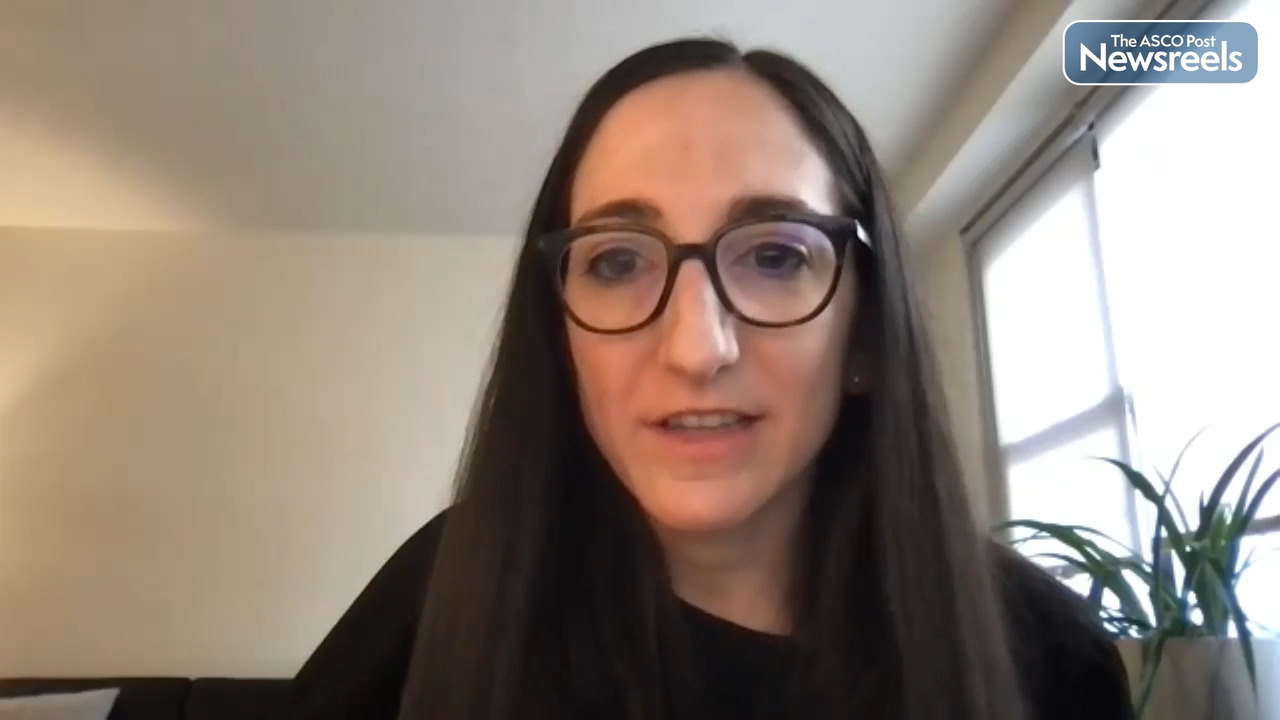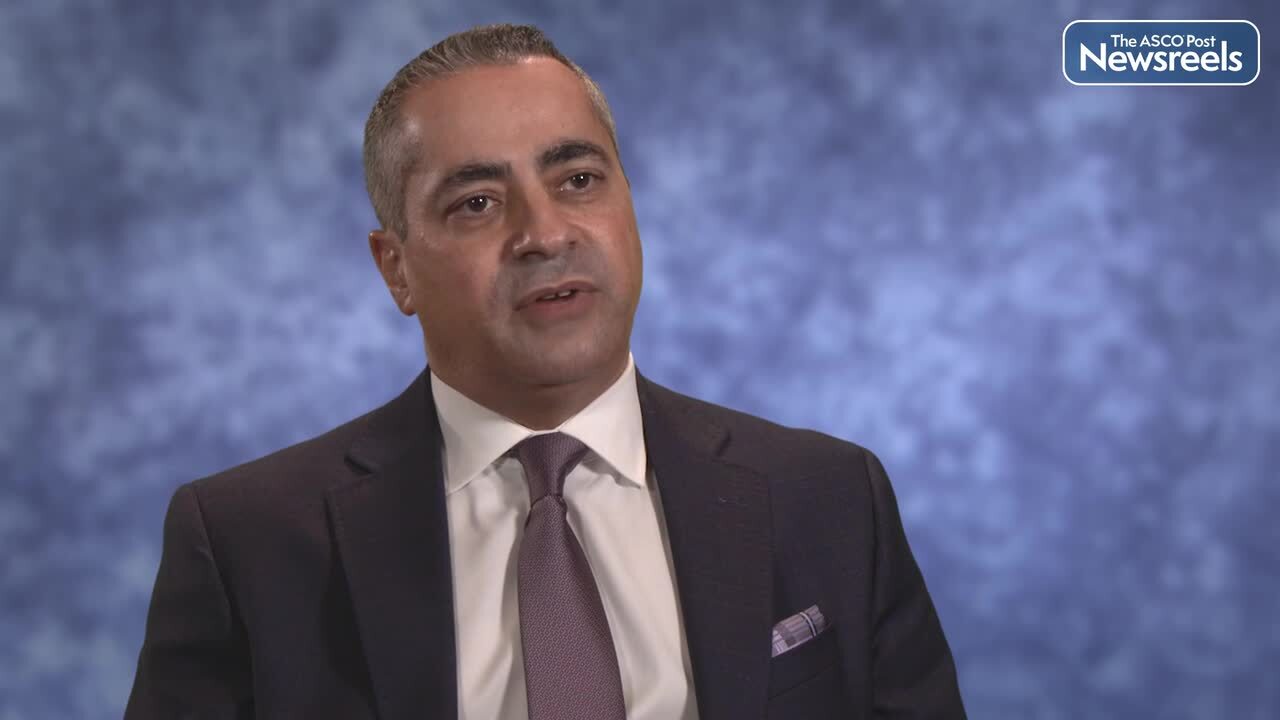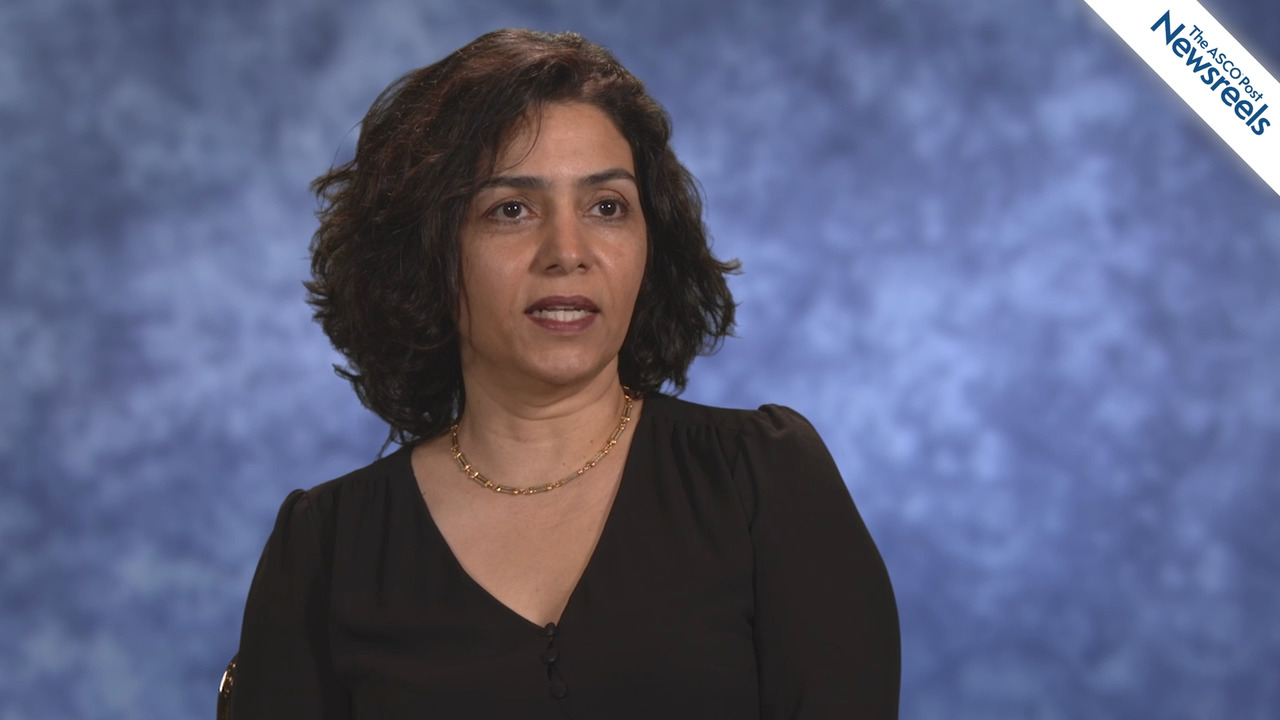Francesca Battaglin, MD, on Upper GI Cancers and the Potential Value of Recurrent Neoantigens
2022 ASCO Gastrointestinal Cancers Symposium
Francesca Battaglin, MD, of USC Norris Comprehensive Cancer Center and the Keck School of Medicine, discusses findings from one of the largest studies to investigate recurrent neoantigens in upper gastrointestinal cancers. Dr. Battaglin and her team identified peptides with high human leukocyte antigen–binding affinity and an association with a positive tumor inflammation signature in both microsatellite-instable and microsite-stable tumors, suggesting a role for such antigens as potential cancer immunotherapy targets (Abstract 246).
The ASCO Post Staff
Nilofer Saba Azad, MD, of Johns Hopkins Sidney Kimmel Cancer Center, assesses the findings from the phase III TOPAZ-1 trial, a study of durvalumab in combination with gemcitabine plus cisplatin in patients with advanced biliary tract cancer. Dr. Azad explains why the study sets a potential new standard of care of gemcitabine plus cisplatin and durvalumab in unselected patients.
The ASCO Post Staff
Heinz-Josef Lenz, MD, of USC Norris Comprehensive Cancer Center, discusses phase II results from the CheckMate 9X8 study, which compared nivolumab plus fluorouracil/leucovorin/oxaliplatin (mFOLFOX6) and bevacizumab vs mFOLFOX6 and bevacizumab in the first-line treatment of metastatic colorectal cancer. A subgroup of patients may benefit from adding nivolumab to the standard of care in this setting (Abstract 8).
The ASCO Post Staff
Melissa Amy Lumish, MD, of Memorial Sloan Kettering Cancer Center, discusses new findings showing a 100% complete response rate to PD-1 blockade alone among the first 11 patients with locally advanced mismatch repair–deficient rectal cancer treated with this approach. None of the patients required chemoradiation or surgery, thus avoiding their attendant morbidities, and so PD-1 blockade may represent a new treatment paradigm. Follow-up on the durability of response is needed (Abstract 16).
The ASCO Post Staff
Anthony B. El-Khoueiry, MD, of the University of Southern California, Norris Comprehensive Cancer Center, discusses two key phase III studies of first-line treatment in hepatocellular carcinoma: the LAUNCH trial, which explored lenvatinib combined with transarterial chemoembolization for advanced disease; and the HIMALAYA trial, which studied tremelimumab and durvalumab for unresectable disease. The latter trial may represent a new standard of care, according to Dr. El-Khoueiry.
The ASCO Post Staff
Afsaneh Barzi, MD, PhD, of City of Hope Comprehensive Cancer Center and AccessHope, discusses results from a phase I/II study of regorafenib and pembrolizumab in refractory microsatellite-stable colorectal cancer. Although the trial did not meet its primary endpoint, the median overall survival is “provocative,” says Dr. Barzi. An analysis of biomarkers to identify patients with a longer duration of benefit is ongoing (Abstract 15).
